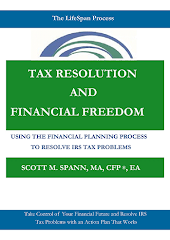What if there was mandatory money instruction for every child in America from kindergarten on up and every adult was required to take an annual test confirming those concepts well into their senior years?
It’s a nice fantasy. But in reality, the first money lessons a child gets come from their parents, and experts agree that the way parents teach and reinforce those concepts will have a major impact on their kids avoiding major financial problems later in life.
So, a question for parents: How equipped are you to teach your kids about money?
If you don’t feel confident about creating a money curriculum for your child, don’t worry, there’s help. Start by planning your own financial future with a qualified financial planner. You can take a close look at where you need to be with your finances and gather ideas to teach your kids about money as well.
However you personalize the lesson, every parent needs to involve these five basic concepts in a child’s money education:
1. Work: It’s true. The first great lesson isn’t so much about money as what it takes to earn money. As early as kindergarten or first grade, your kid is going to have to start paying for things. Children need to understand as early as possible that a good day’s work should deliver a good day’s pay, so it’s a good idea to come up with age-appropriate chores in exchange for an allowance. The best place to start is with simple jobs like setting the table and making beds. For older kids, yard work, laundry and housecleaning are good to add to the list.
How big should that allowance be? Try to match the allowance closely to the expenses you want your child to cover and leave a little wiggle room for treats. That way, the child begins to understand choice while learning that spending requires limits. Also offer options that allow children the opportunity to earn additional money for extras – toys or privileges, for instance – then stress why working for treats is important. When kids are younger, you should keep a frequent watch over how they’re handling their cash – checking in every day or so – and then allow them more leverage as they demonstrate wise decisions.
2. Saving: Once you teach your kids about spending, help them identify larger goals they have to save for. Buy a piggy bank – young children relate very well to this tried-and-true symbol of saving. It gives them someplace to put money out of sight so they don’t spend it, and you should impress upon them that they are free to tap into it only to accomplish a goal that the both of you initially discuss. Again, as they make smarter decisions, let them have more responsibility. And this lesson shouldn’t just be about buying stuff – kids need to learn how money can be used for setting and accomplishing goals.
If it makes sense for you, you can also add incentives to save. One idea: Tell your son or daughter that you’ll give them $1 for every $5 or $10 they put in the bank. It will definitely make them think twice about an impulse purchase.
3. Budgeting: Budgeting is one of the most universally misunderstood money concepts for children and adults. That’s why it’s so important to make sure a child understands why it’s so important to write down money priorities and keep track of whether those priorities are being met. When a child gets a little older, it might be a good idea to help them establish a budget for everyday expenses with an important side goal, such as accumulating spending money for a much-anticipated family vacation. Parents might show kids a similar exercise for how they’re setting aside money for the trip. Unsure how to set up a budget? PBS Kids offers an example.
For younger kids, it might make sense to turn the budgeting process into a game. Parents might take a stack of fake money, give it to the child and ask what they would spend it on. The child would write down each purpose – toys, school lunches and special things they need to save for – and get them to write down how they’d allocate the cash. This can turn into a real exercise later.
4. Delayed gratification: If budgeting and savings are going to work, kids need to know they can’t spend their money whenever they feel like it. Parents need to lead by example here. If kids always see you paying with plastic and bringing home carfuls of shopping bags each week from the mall, they might get a sense that money is limitless. On the other hand, if they see you making lists, tearing out coupons and talking about saving for particular goals over the long term – they might start to mimic that behavior.
5. Helping others: It’s important for children to know that there is always someone less fortunate than themselves and it’s important to help, even in a small way. Increasingly, kids are involved in charitable and community activities as part of their educational process – such work even figures into college applications. Teaching your children to set aside a little for those who have less might be a good first lesson in what should be a lifetime of sharing with others. Also, don’t forget that charity isn’t always about money. Kids should also learn the importance of giving their time and labor to important causes and people in need. And if they think of unique and effective ideas to help, by all means, praise and encourage that activity.
September 2010 — This column is produced by the Financial Planning Association, the membership organization for the financial planning community, and is provided by Scott M. Spann, CFP(R), EA, a local member of FPA.
Wednesday, September 29, 2010
Subscribe to:
Post Comments (Atom)





Hello,
ReplyDeleteI was hoping I could write a guest blog on your website (http://taxresolutionplan.blogspot.com/), with an article related to your site, I believe this will be of interest to your readers.
The article will be 100% original, written just for your blog and will not be posted elsewhere. Of course this will be completely free for you, however I would appreciate a live link back to our site. If you're interested in this idea, please get back to me.
I would like to add one more thing, I will promote the content on social networking sites which will help the post to get traffic and serp ranking.. If you are looking for li--nk swap from a high page rank site, let me know I can go for that deal too which will be free..
Thank you so much for your time and consideration.
Thanks & regards,
Emily Jones
Email:- emily.jones025@gmail.com
please give more information about financial planning topics related to tax resolution.this information helpful for me.
ReplyDelete----------------------------
Back taxes